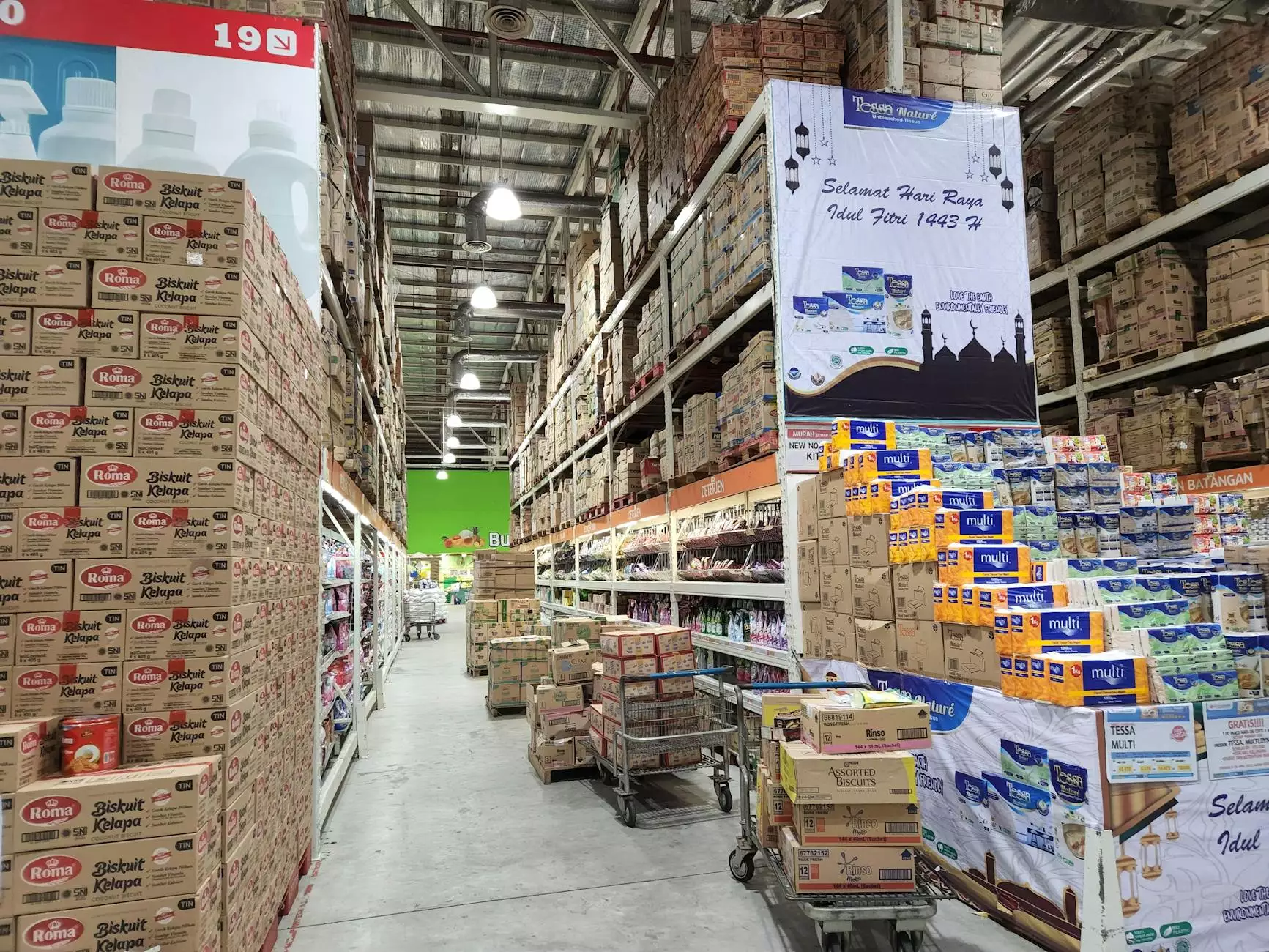Shop Wholesale Products: Unlocking the Potential of Wholesale Shopping

In today’s competitive market, businesses are always searching for ways to maximize profit margins while minimizing expenses. One of the best-kept secrets in the retail and purchasing world is the practice of wholesale shopping. If you are looking to shop wholesale products, understanding the vast advantages can help you unlock new opportunities for growth and sustainability.
What is Wholesale Shopping?
Wholesale shopping is the process of purchasing goods in bulk at a discounted price, typically for resale. This concept caters to both large and small businesses that want to stock up on necessary products without breaking the bank. By buying in larger quantities, businesses can take advantage of reduced prices per unit, leading to more significant profits on the sales end.
Benefits of Shopping Wholesale Products
Understanding the advantages of shopping wholesale products can significantly impact your business strategies. Here are some compelling reasons why wholesale shopping should be on your radar:
- Lower Cost per Unit: Purchasing products in bulk typically means you get a better price per item. This can significantly decrease your overall cost, allowing you to set competitive pricing for your customers.
- Increased Profit Margins: Higher savings during procurement translates into higher profit margins when selling to your customers.
- Product Variety: Many wholesale distributors offer a wide variety of products, allowing you to provide more options to your customers without worrying about limited inventory.
- Consistent Supply: Working directly with wholesalers can lead to more reliable supply chains, ensuring that you have the necessary products on hand when demand arises.
- Less Competition: Depending on your niche, sourcing products at wholesale prices can differentiate you from competitors who purchase at retail prices.
How to Effectively Shop Wholesale Products
Shopping wholesale products requires some strategic planning and consideration. Here’s how to maximize your wholesale shopping experience:
1. Know Your Market
Before diving into wholesale purchases, it is crucial to understand the market you are operating in. Research the following:
- Target Audience: Identify who your customers are and what products they are interested in.
- Competition Analysis: Examine what your competitors are offering and determine how you can stand out.
- Trends and Preferences: Stay updated with the latest trends in your industry that might influence buying decisions.
2. Choose the Right Wholesaler
Selecting a reputable wholesaler is essential for ensuring the quality of products you offer. Look for wholesalers that have:
- Good Reputation: Read reviews and seek testimonials from other businesses.
- Product Return Policy: Familiarize yourself with the return and exchange policies to ensure you can manage unsatisfactory purchases.
- Quality Control Measures: Ensure the wholesaler has protocols in place for maintaining product quality.
3. Build Strong Relationships
Having a good relationship with your wholesalers can yield several benefits. Consider the following:
- Negotiation Opportunities: A good relationship can lead to better pricing or exclusive offers.
- Priority Access: Trust often results in priority access to new products or sales.
- Communication: Regular dialogue can help resolve issues faster and foster collaboration.
Common Products to Shop Wholesale
When deciding to shop wholesale products, knowing which categories to explore can guide your purchasing decisions. Here are some popular wholesale product categories:
1. Apparel and Fashion Goods
Clothing, accessories, and footwear are always in demand. By shopping wholesale in this category, you can offer a diverse range of styles at competitive prices.
2. Electronics and Gadgets
Consumer electronics such as smartphones, tablets, and accessories too are always in high demand. Wholesale shopping in electronics can lead to significant savings, especially when purchasing in bulk.
3. Home and Garden Supplies
Products like home decor, gardening tools, and furniture often see steady demand. Shopping wholesale for these items can attract customers looking to furnish or renovate their homes.
4. Health and Beauty Products
With the ever-growing focus on wellness and self-care, wholesale health and beauty products, including skincare and nutritional supplements, can be a lucrative market.
Wholesale vs. Retail: Understanding the Difference
Many small business owners remain uncertain about the distinctions between wholesale and retail. Here’s a breakdown:
- Pricing: Retailers typically pay more for products since they purchase in smaller quantities, whereas wholesalers sell at lower prices due to bulk buying.
- Intended Use: Retailers sell directly to consumers, while wholesalers sell to businesses, retailers, and other distributors.
- Market Scope: Retail tends to focus on individual sales, while wholesale focuses more on larger orders and long-term client relationships.
Challenges in Wholesale Shopping
While wholesale shopping has its advantages, it also comes with challenges that businesses must navigate:
1. Initial Investment
Buying in bulk requires upfront capital, which might be a significant barrier for new businesses. Therefore, one must ensure that projected sales can justify this investment.
2. Storage and Inventory Management
Holding large quantities of stock can lead to challenges in storage and inventory management. Efficient inventory systems become essential to prevent overstocking or stockouts.
3. Risk of Unsold Inventory
Not all products will sell, leading to potential losses. It is crucial to analyze market trends and consumer preferences accurately to minimize this risk.
Innovative Strategies for Wholesale Shopping
To maximize the benefits of shopping wholesale products, consider these innovative strategies:
1. Take Advantage of Seasonal Discounts
Many wholesalers offer seasonal promotions or clearance sales. Timing your purchases can maximize savings significantly.
2. Form Purchase Groups
A collaborative purchasing approach with other businesses can lead to further discounts. Pooling resources with other companies can help you meet minimum order requirements more easily.
3. Use Wholesale Marketplaces
Online wholesale marketplaces provide access to a broader range of products and suppliers compared to traditional wholesalers. Websites like Alibaba and Wholesale Central can connect you with numerous wholesalers worldwide.
Conclusion: The Future of Wholesale Shopping
As the landscape of retail continues to evolve, the wholesale shopping sector offers significant opportunities for businesses willing to adapt. Understanding the dynamics of wholesale purchasing, from the initial investment to relationship management, is crucial for success.
By leveraging the benefits outlined above, you can enhance your purchasing strategy and ultimately grow your business. Remember, the key to thriving in the wholesale market lies in meticulous research, effective supplier relationships, and innovative approaches to inventory and sales strategies.
If you wish to shop wholesale products, take the time to explore options that align with your business goals, and watch as your operations become more efficient and profitable. The possibilities are endless when it comes to wholesale shopping; the only limit is your ambition to harness its full potential!









